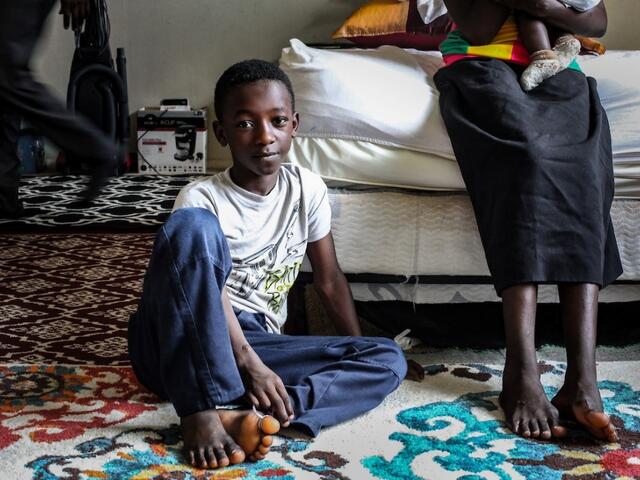
In 2017, the IRC in Silver Spring enrolled over 75 children in Prince George’s and Montgomery County schools. Most of these refugee children experienced a disruption in education, along with challenges including limited access to healthcare, food, and other basic necessities. Once families are resettled in the United States, the challenges faced by youth shift— many grapple with limited English language skills, living in disadvantaged neighborhoods, attending under-resourced schools, and navigating an unfamiliar US school system. Students may also struggle with past trauma and cultural adjustment, along with a range of issues that all school-aged youth face, such as bullying, exposure to drugs, and academic achievement.
On average, an American student will spend 943 hours in school each year. With so much time spent at school, it is crucial that each and every student feels safe and comfortable within a school context. Providing refugee students with the support and guidance to ensure academic success is an added challenge for teachers who are not always trained to work with refugee students. However, it is important to note that across the schools where the IRC enrolls students, teachers are working hard to meet the specific, unique needs of refugee youth while also addressing the needs all other students.
In consultation with the school systems in Prince George’s and Montgomery Counties, the Youth Department at the IRC in Silver Spring developed an Effective Strategies for Teaching Refugees training for staff and faculty at the schools attended by refugee youth. Through its holistic overview of the needs of refugee youth, the training provides school staff with an enhanced capacity to provide effective and culturally responsive support to refugee students. The training covers a wide array of best practices for working with refugee youth in a school setting, with a specific focus on ways to promote English acquisition, social-emotional well-being, and understanding the effects of trauma on academic success. The instructional approach of the trainings emphasizes the importance of cross-cultural learning and provides educators with additional tools and knowledge to effectively work with refugee youth, set youth up for academic success, and help youth navigate a new culture.
Strengthening the cultural sensitivity of educators has been shown to build trust with parents, by allowing parents to more fully engage in their children’s education, and to sensitize teachers to the cultural barriers faced by students in the classroom. Through continued trainings and reciprocal learning, the Youth Department at the IRC in Silver Spring is working in tandem with all school staff to share the tools and techniques to best serve our New American immigrant families. With continued community support and guidance from dedicated school staff, the children served by the IRC will continue to have bright educational futures as students in the U.S.